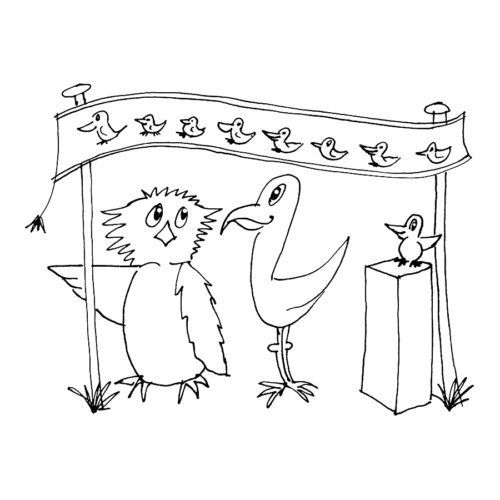#2 Be Valued: how to set the right price and sell
When we set a price for our product or service, we need to understand three things:
- The COST of what we produce
- Its WORTH or value to our potential customers
- That, whatever we think, ultimately it is our CUSTOMERS that decide what they will pay (and this may be more than you think!)
Costs include your time, materials and expertise. Worth is based on scarcity, customer values and status. Understanding, therefore, your ‘ideal customer’ is an important part of deciding your price.
In general, when you make or produce something, it is usual to sell it for twice what it costs you to buy or make it. For example:
- 50% cost of production – materials, tools, rent, wages
- 50% profit
When you sell services, for example: consultancy, accounting, translation, copywriting or legal help, your price calculation may be based on a basic hourly rate to cover:
- % for fixed costs such as office, travel, equipment, software
- % for your time
- % for profit
However, market factors will affect the basic price of any product or service. These are:
- Your competitors’ prices
and, more importantly,
- What you or your product is worth to your customer: your common values, your experience and how special, unique or rare you are

Know your worth
If you are the only plumber in town, your prices are going to be higher than if there were 20 others to choose from. This is because your worth to the residents of the town, over and above the actual cost of what you do, is very high. Your worth would also be high if there were 20 other plumbers but you were the only one who knew how to fix a leaking tap.
If you offer professional or intellectual services, and, for example, you are the only accountant in town your fees will follow a similar pattern to the plumber, based on scarcity and unique skills.
People will pay more for what they value, such as:
Expertise
Experience
Quality
Trustworthy
Unique and exclusive
People also prefer to choose a business with shared personal values, for example: family business, eco-friendly etc.
Your worth to your customer increases with every value you share… It’s like ‘speaking their language’.
It’s important to look at your business from you customers’ point of view. What would build their trust, add value and help you stand out from your competitors? How about:
- An unique product
- Personalised delivery
- Free tasters
- After-sales support
- Multi-buy discount
- Money-back guarantee
- Qualifications and accreditations
- Testimonials
- Brand values
- Niche expertise and experience
How you present yourself and how you behave also has a big impact on people’s perception and trust of your business. We look at this aspect in Be noticed: How to create a great brand and also later in our forthcoming Be Seen: How to develop your website and marketing materials.
Let’s face it, if the broken, hand-painted sign hung on your gate looks like your five-year-old son painted it, no one could be blamed for giving your flying lessons a miss.
Finally, test and measure your price. Don’t be afraid to make a change if something isn’t working. It is always wise to: “fail fast and move on.”
How to be good at selling things
Most people I talk to don’t like selling things. It makes them feel awkward and anxious.
As a micro entrepreneur and startup business, your ‘sales team’ is probably just you and, if you are lucky, one other. So feeling anxious about ‘selling’ is not healthy when no sales mean no business.
If you do feel anxious about selling, stop thinking about a ‘sale’. Breathe and start thinking about how you can help people and build trust. Ask yourself the questions: “Who can I help, where are they and how can I help them find me easily.”
Sales take trust and trust takes time.
As a startup you won’t have a well-known reputation or brand to help persuade customers to buy from you, so an important first step on the road to building sales is building trust.
Think for a moment. How long would you want to know someone before you would be happy to lend them money? Would you feel happy lending money to someone you only know a little? How about someone you have just met? How about someone you have never met?
You are asking people you have never met to give you money – to trust you. That is why building and maintaining trust with your customers is an essential part of building a successful business. Trust and good relationships rely on:
- Generosity
- Reliability
- Support
- Honesty
- Consistency
- Credibility
- Response
When you think about growing a relationship, not simply ‘making a sale’, you will find that your potential customer may not buy from you immediately, but they will begin to trust you. They will be comfortable asking your advice. They will remember you and, importantly, they will buy from you and are more likely to recommend you to others.
Stop talking… Start listening
Whatever it is that you provide, from a holiday home to art classes, accountancy and hairdressing to building services, before you can begin selling you need to listen to your potential customers and observe your competitors.
Spending time finding out how others market and deliver their services or products is a great way to spot a gap or a new opportunity. It will help you understand what is different about what you offer, as well as giving you some good ideas.
Be seen regularly and often
Selling is also about being seen. Find out where your customers get their information. Is it from the Internet, from the local paper, a specialist magazine or on the high street? It is also worth getting out into your local community to talk about what you do and why. Think about any interest and business groups or specialist clubs.
Your story can also often be more powerful than a list of service features. Why and how you came to be in business is another part of your sales toolkit that you can draw on to engage people emotionally. Many micro entrepreneurs use a blog or speaking event to build up an audience that will turn into their customer base.
Tell your story…
Le Moulin de Pensol is an old mill. Nestling in the hilly folds and forests of the Haute Vienne region of south west France, it’s home to British owners Heidi and Nik, and its barns and outbuildings bring in income as charming holiday gîtes. The surrounding land covers some eight hectares of pasture, woods, streams and meadows with paths radiating out to join the miles of national forest tracks. An area popular with British, Dutch and French holiday makers, there are plenty of similar properties and competition to attract guests. Le Moulin de Pensol’s growing reputation and bookings are because of why and how Heidi and Nik have chosen to sell their particular brand of holiday.
Heidi and Nik focus on sharing their love of wildlife and nature: flowers, insects, donkey grazed pastures, tame pigs and sustainability. Blogs focus on the seasons and what you can find growing, burrowing or flying by. With 61 species of butterfly to spot on their land alone, they advertise in nature and butterfly conservation magazines, as well as the more usual places. They appeal to people who already have an interest or are actively looking for time out in nature and an ecological approach to living. For customers looking for this type of holiday, it is not ‘if’, but, ‘when’ can we book?
To find out more, you will find Le Moulin de Pensol here…
Being able to sell is not just about what we sell and where, but also how we sell it. Read Be Noticed: How to Create a Great Brand for more advice on brand building.
Don’t Undersell Yourself – how to negotiate
If you offer professional services, as opposed to a set price product, whether it’s an hourly rate or a flat fee, don’t begin any negotiation with the price, or introduce it before the client does. Instead introduce all the reasons they should choose you, for example: your aptitude and experience for the subject matter; your resources; your ability to deliver in their time frame and your shared values. In this way you have the opportunity to build trust.
People care less about the cost when they have peace of mind.
If the client does bring up price first, simply request more information, because how can you quote properly before you understand their requirements? Resist the urge or pressure to give a quote on the spot. Give yourself time to think about it, tell them when you’ll respond and ensure you get back to them, as promised, with your considered estimate.
If clients want a discount what’s in it for you? Are they offering a long-term project where regular work would help you out? Will it help get your business off the ground and help build up your reviews? Reducing your fees can mean you agree to take out a certain activity and still satisfy your client. When you give away your time and expertise for free, some people will be happy to keep taking; they don’t value you or your time and are not the clients you want.
Finally, it is wise to state on any quote that should their requirements change during the project, then, so will your fees. Reassure them that when this happens you will discuss it with them. This helps avoid you doing more work than was originally agreed.

“Wishing to be friends is quick work, but friendship is a slow ripening fruit.” Aristotle
Integrity and reputation
When we first talk to our customers, it can be very tempting to show off all the benefits and features of something we are trying to sell, but it’s important not to over promise or exaggerate. Remember: your voice is not the important one in the relationship. When your customers feel listened to, when they can get all their questions answered and they feel valued, their loyalty, trust and wallet will follow. When you negotiate, be confident, clear and consistent. Now is the time to remind them how much easier their lives would be if they choose you!
You won’t build an empire with one advert, one blog post or one conversation, but, if you make a choice to do the best you can every day with what you have and who you know, without fail, becoming good at sales can be as simple, and as powerful, as that.
Top tips for how to set the right price and sell:
- Look like you mean business
- Take a deep breath, this is a marathon not a sprint
- Think about how best to help people and build trust
- Listen to your customers and learn from your competitors
- Understand what your customers value
- Understand your own worth and negotiate with confidence
- Be consistent
- Be found
Guide written by Jacky Fitt. Discover the work of our translators.









